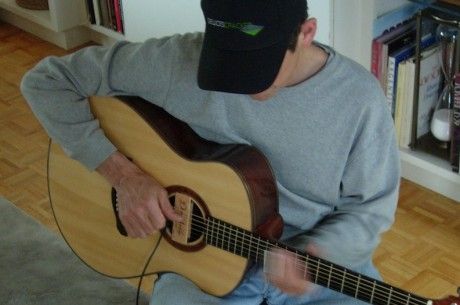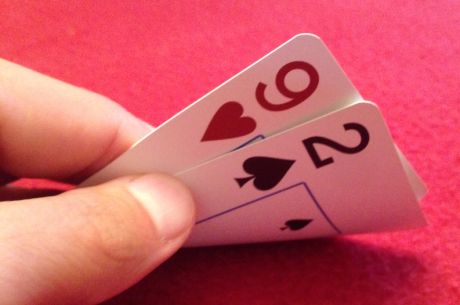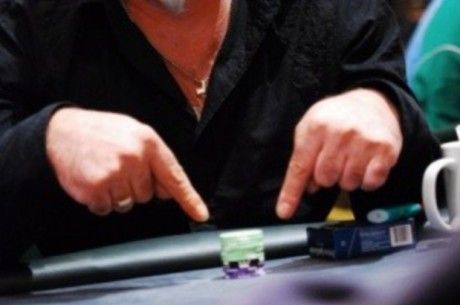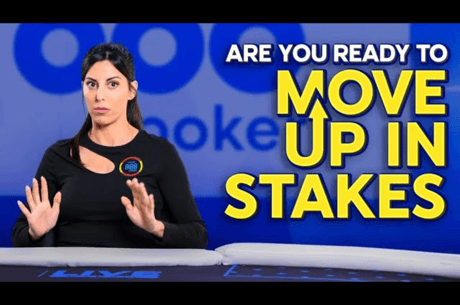The 2 Things You Need To Do To Cut Your Poker Losses
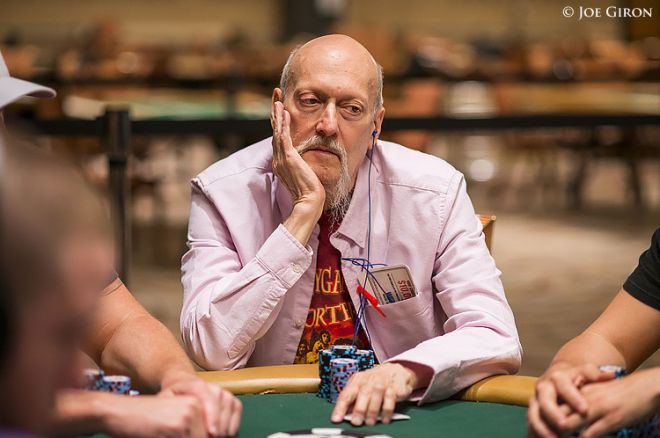
You probably know who Ed Miller is. He writes a column for Card Player magazine, and is the author or co-author of a bunch of excellent poker strategy books. He��s one of my favorite poker writers.
The other day on his Facebook page, Ed posed this thought-provoking question: ��If you consider yourself a long-term winner at your stakes, what is the #1 thing you think you do that provides your edge?��
At the risk of sounding boastful, I think I have a lot of things that I do better than my average opponent. How could I narrow it down to one that stands out most?
But I took Ed��s challenge seriously and thought fairly long and hard about it before settling on an answer. I can��t prove statistically that this is my most important edge, but I think it��s a good candidate: I lose less on my bad days.
My winning days are rarely spectacularly good. They��re much more often modest profits, and I��m okay with that. Most poker players, however, when losing tend to lose big, dumping several winning days�� worth of profit in a bad session. That��s almost never true of me.
I think this general strength breaks down into two more specific habits �� resisting tilt, and being willing to leave a losing session relatively early.
Resisting Tilt
I believe that I am more emotionally stable than most opponents. I can take bad beats in stride. I experience brief annoyance, of course, but quickly recover.
Instead of playing more wildly and desperately to get even, with loosened starting hand standards and frequent bluffing �� which is the most common reaction to such losses �� I plot ways to take advantage of other players who will erroneously think I��m on tilt and playing that way.
Walking Away
One of the most common bad habits of poker players is to play short sessions when winning in order to lock up a profit, but to keep playing interminably when losing in an effort to get back to the plus side before quitting. The effect of the latter is usually to turn a bad day into a disastrous one.
Several years ago Steve Zolotow (pictured above) wrote a Card Player column in which he addressed this very issue. He said, ��Look at your five biggest wins and five biggest losses. If you played significantly more hours during those losses than you did during your wins, you have a major discipline problem. If you perform this simple exercise and change your negative pattern, it will be the most important thing you can do to improve your bottom line.��
I��m quite resistant to the temptation to extend losing sessions, and it��s in large part because I decided to take Zolotow��s advice to heart. I crunched the numbers on my own results, and discovered that if I lost two buy-ins, I almost never showed a profit on a third or fourth. That revelation was enough to convince me to change my ways. Now, after one or two buy-ins have been lost, I��ll just pack it in for the day.
Sometimes the losing is because of bad luck. Sometimes I��m off my game. Sometimes I��ve stumbled into a table with more sharks than usual. But here��s what��s critical �� often I��m not sure what is wrong.
It��s very easy to jump to the conclusion that the losses are just bad luck, but that diagnosis will be wrong a substantial percentage of the time. I don��t trust myself to know where the problem lies. After all, if I��m not playing my ��A�� game, then my ability to sort out what��s going wrong is probably also not firing on all cylinders. So I don��t try to analyze it. I just go home.
Sure, maybe once in a while I leave a juicy game �� as Jamie Kerstetter put it in a recent article in Bluff magazine, the kind of game where you are sitting with the cast of Finding Nemo. But more often, I save myself not only from my own bad play, but from my own diminished capacity to recognize that it��s bad play. Those two problems tend to go hand in hand.
Conclusion
If you have a problem with tilt, read anything you can get your hands on by the guru of conquering tilt, Tommy Angelo �� who conveniently writes columns right here on PokerNews. If you have a problem with extending losing sessions until they wipe out many days�� worth of wins, you��ve got to learn to take a small loss instead of a big one, and be willing to wait for another day to chalk up a ��W�� in your ledger.
Neither problem is easy to fix. Both require the application of hefty amounts of discipline. But both have the potential to turn you from a long-term loser into a long-term winner, or from a small long-term winner into a big long-term winner. This happens not by winning more on your good days, but by losing less on your bad days.
Robert Woolley lives in Asheville, NC. He spent several years in Las Vegas and chronicled his life in poker on the ��Poker Grump�� blog.
Get all the latest PokerNews updates on your social media outlets. Follow us on Twitter and find us on both Facebook and Google+!

